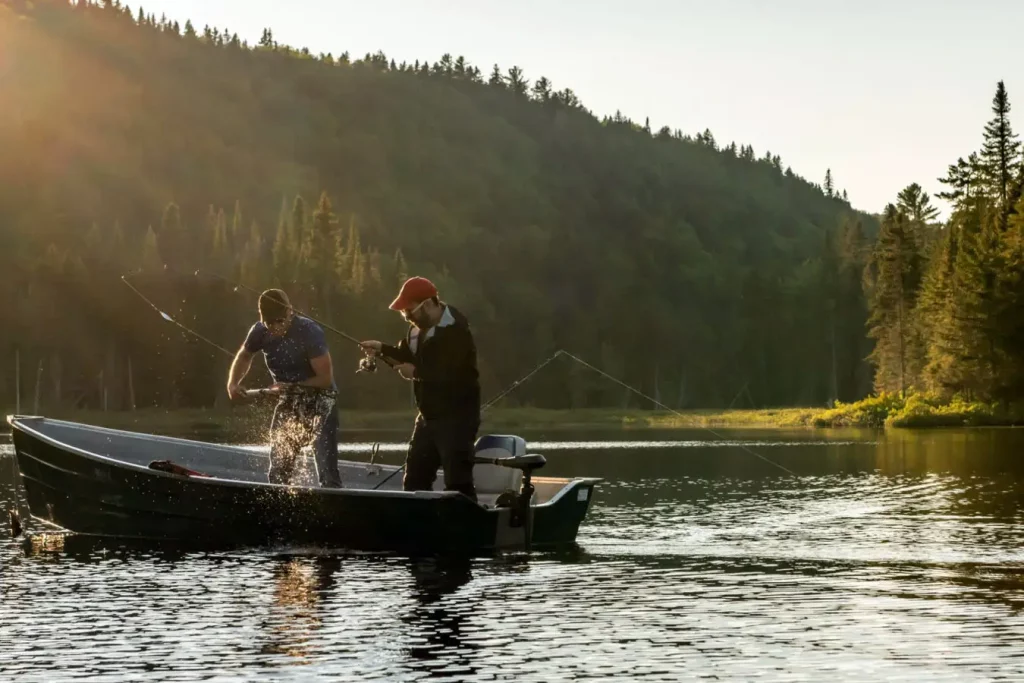Fishing is an activity that many people enjoy, and springtime is one of the best times to go fishing. The weather is starting to warm up, and the fish are starting to come out of their winter hiding places. If you're planning a fishing trip this spring, here are some tips and tricks that can help you make the most of your time on the water.
Choosing the Right Location
Choosing the right location is crucial for a successful fishing trip. Factors to consider include the type of fish you want to catch, the size of the body of water, and the fishing regulations in the area. Look for spots where the water is deep, and there is plenty of cover for the fish to hide in. You can research online, consult with local fishing shops, or talk to fellow anglers to help determine the best fishing locations in your area.
Research the Species
Each fish species has different habits and requires different techniques for catching them. Do your research and learn about the behavior patterns of the species you're targeting. This includes understanding their preferred habitat, what kind of bait they prefer, and how to properly present the bait. This knowledge can help you choose the right gear, bait, and location for a successful fishing trip.
Get the Right Gear
Having the right gear can make all the difference in catching the fish you're after. Ensure that your gear is appropriate for the species you're targeting and the type of water you'll be fishing in. Consider factors such as rod length, line strength, and lure size. A knowledgeable fishing shop owner can guide you in choosing the right gear for your needs.
Pick the Right Time of Day
The timing of your fishing trip can also impact your chances of success. Typically, fishing is best early in the morning or late in the evening when the fish are most active. Avoid fishing during the hottest part of the day when the fish are more likely to be hiding in cooler, deeper water.
Use Live Bait
Live bait is often more effective than artificial lures as it mimics the natural movement and scent of the fish's prey. Use live bait such as worms, minnows, or leeches and change it frequently to keep it fresh. You can also use artificial lures, but make sure they mimic the natural prey of the species you're targeting.
Practice Patience
Fishing requires patience, as it can take time to locate the fish and entice them to bite. Don't give up too quickly, and be prepared to spend some time waiting for the fish to come to you. Patience and persistence can often pay off in the end.
Pay Attention to the Weather
The weather can have a big impact on fishing conditions, so pay attention to the forecast and plan accordingly. Windy days can make casting difficult, while rainy days can cause the fish to move closer to the surface. Sunny days can also make fish warier, so be prepared to adjust your tactics as needed.
Cast Your Line in Different Directions
Don't limit yourself to casting in just one direction. Experiment with casting in different directions, and vary the distance and depth of your casts. This can help you locate where the fish are hiding and determine what kind of bait and technique they prefer.
Vary Your Retrieval Speed
Fish can be finicky, and they may prefer a certain retrieval speed over others. Vary the speed of your retrieve until you find what works best for the fish you're targeting. This can involve slow and steady retrieves or quick and jerky movements.
Keep Your Line Tight
Always keep your line tight, as this will allow you to feel even the slightest tug on your bait. If you feel a bite, set the hook quickly, and reel in your catch. A loose line can make it difficult to detect when a fish has taken your bait.
Stay Safe on the Water
Always prioritize safety when fishing. Wear appropriate clothing and footwear, and make sure you have life jackets and other safety gear on board. Be aware of your surroundings and any potential hazards in the water, such as rocks or underwater obstructions.
Respect the Environment
As a responsible angler, it's important to respect the environment and the fish you're targeting. Follow fishing regulations, practice catch-and-release whenever possible, and avoid leaving behind any trash or debris.
Clean Your Gear
After your fishing trip, take the time to clean and maintain your gear. Rinse your rods, reels, and other equipment with fresh water, and dry them thoroughly before storing them away.
Know the Fishing Regulations
Fishing regulations can vary depending on where you're fishing and the species you're targeting. Make sure you're familiar with the local regulations and follow them closely to avoid fines or other penalties. These regulations are in place to protect the fish populations and ensure that fishing remains a sustainable activity for future generations.
Have Fun!
At the end of the day, fishing is all about having fun and enjoying the outdoors. Don't take it too seriously, and remember to enjoy the experience, regardless of whether or not you catch any fish.
In conclusion, with the right preparation, gear, and mindset, a springtime fishing trip can be a rewarding and enjoyable experience. Follow these tips and tricks to increase your chances of success and make the most of your time on the water.


